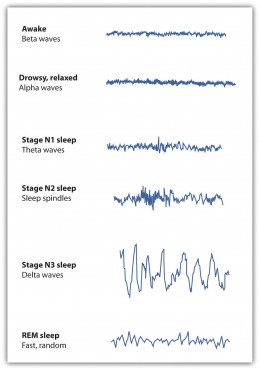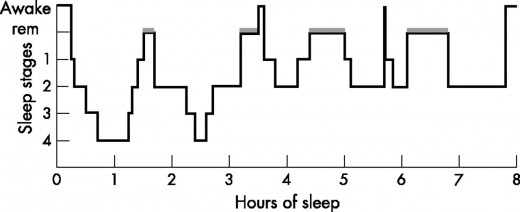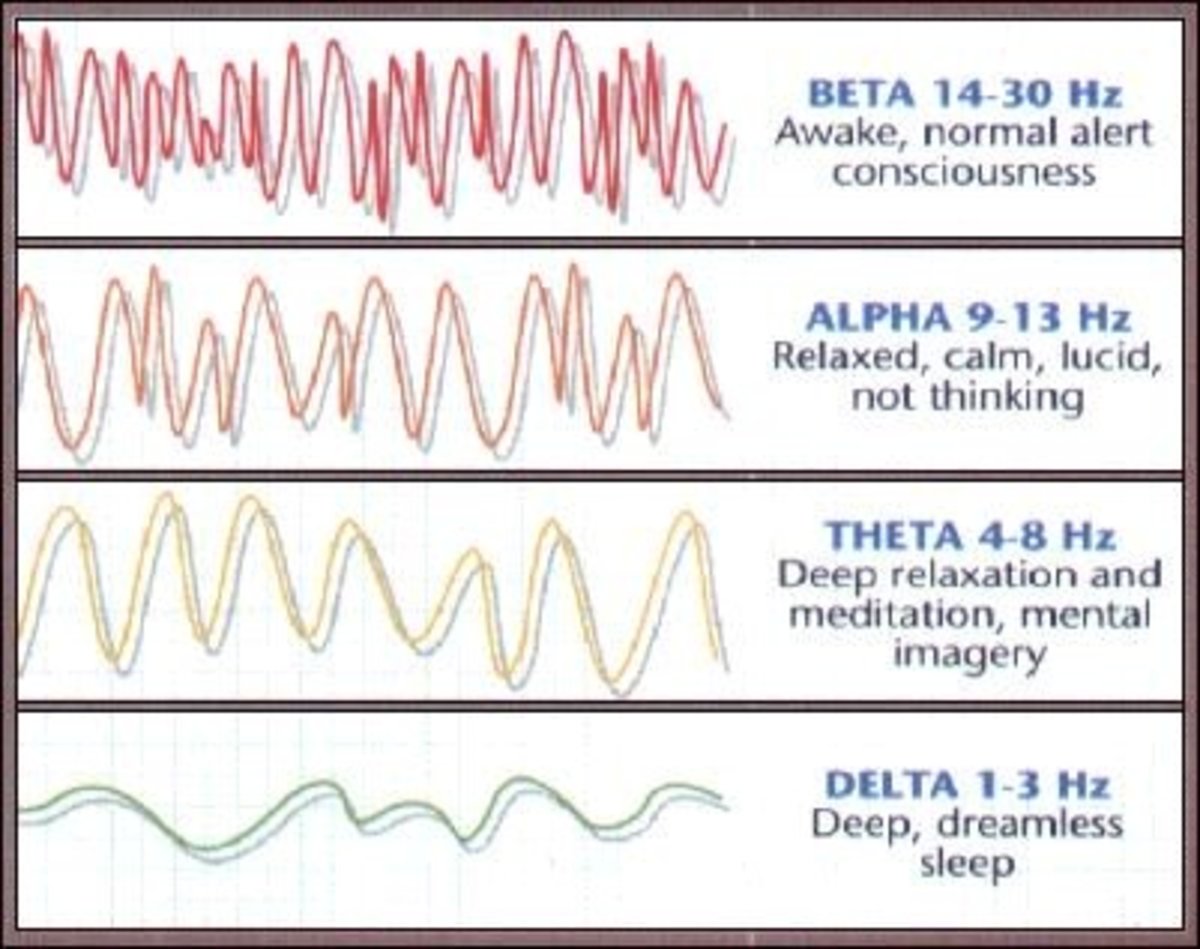Sleep - Why is it so important?

Over a 90 year life span an average person will have spent 36% of their life asleep. That's 32 years asleep!
What this tells us is that sleep is in someway incredibly important. So what exactly is sleep and why is it so important?
A electroencephalogram or EEG measures brain activity by reproducing the intensity and frequency of impulses on a graph. Usually brain waves or electrical impulses on the EEG are a complex array of low amplitude waves. At sleep, however, during certain stages neurons tend to synchronise their electrical impulses and produce similar high amplitude waves.
Brain waves:
Alpha Waves (8-13 Hz) are regular and rhythmic. These mostly indicate the brain is idling or in a calm state.
Beta Waves (14-30 Hz) have higher frequencies but similar amplitude to alpha waves, indicating a state of enhanced mental activity - possibly while concentrating.
Theta Waves (4-7 Hz) are not usually seen in adults. Theta waves are associated with a state between consciousness and unconsciousness or states of hypnosis.
Delta Waves (less than 4 Hz) are high amplitude, low frequency waves which are seen during deep sleep (in awake adults indicates brain damage)
Sleep is defined as a state of partial unconsciousness from which a person may be aroused by appropriate stimulation. During sleep, cortical function (the big hemispheres of the brain) is reduced but the brains stem (between the big hemispheres and the spinal cord) remains active in order to control respiration, blood pressure and heart rate. Environmental monitoring seems to be active also which is why sleep walkers are able to navigate around obstacles in their sleep.
There are two main types of sleep which alternate during sleep: non-rapid eye movement (NREM) sleep and rapid eye movement (REM) sleep. As we sleep we fluctuate several times through both stages of sleep and their sub stages.

The sleep stage progressions:
Awake
REM: skeletal muscles are inhibited except ocular and diaphragm muscles.
NREM1: relaxation begins - alpha waves present
NREM2: Irregular spikes appear on EEG - arousal is more difficult
NREM3: theta and delta waves appear - vital signs decrease
NREM4: delta waves dominate - deep sleep stage - arousal more difficult - bed wetting, night terrors and sleep walking may occur.

After about 90 minutes of sleep we reach NREM4 before the EEG indicates we backtrack quickly through the stages back to REM sleep mode.
This brain wave change is coupled with an increase in respiration and blood pressure. Skeletal muscles, except ocular muscles are inhibited to prevent us acting out our dreams. Some suggest the eye fluttering that occurs during this stage are eye movements of us following the visual imagery of our dreams.
Slow wave sleep (NREM3 and 4) and REM sleep are important for different reasons. Deep Sleep can enhance long term memory while also being considered to be restorative and is a time when neural activity is at its lowest levels. If a person is deprived of sleep, more time each night is spent in deep slow wave sleep at the expense of REM sleep. A lack of REM sleep is linked to depression and mood swings. Cell division and growth occurs at the greatest rate during slow wave sleep along with protein synthesis.

REM Sleep
REM sleep is considered to allow the brain to analyse the day's events, store necessary things to short term memory, forget unimportant things and allow the brain to work through emotional problems. If you've ever noticed that people, places and events that you have recently thought of or have experienced will often appear in your dreams (regardless of how silly they might seem), rather than scenarios that you've never encountered yourself.
A recent study revealed that the brain removes toxins during sleep in a flushing out system where the cells shrink to allow adequate room to remove such toxins such as beta-amyloid protein - a substance that is found in high amounts Alzheimer's patients.
While there are many theories for the exact reason why we sleep it is most likely that it is a combination of theories which have developed through evolutionary changes over thousands of years.
How much sleep is necessary?
A person's sleep requirements decline from 16 hours a day during infancy to 7.5 to 8.5 hours a day in early adulthood and continues to decline in old age.
How much sleep do you normally get each night?
If your having trouble getting started when your alarm sounds reconsider the time you set it for.
Since we generally alternate every 90 minutes through our sleep cycle if you were to be awoken by your alarm during NREM3 you would find it hard to get up since you were in the middle of a deep sleep cycle when your body isn't ready to wake up. it may be useful to set your alarm so that you wake up at a time which is a multiple of 90 when you reach REM sleep as your mind and body is better prepared for waking. For example, if you go to sleep at 10pm set your alarm for 5.30am (a total of 7.5 hrs = 5 complete sleep cycles) instead of 6.00am or 6.30 am. Even though you've slept 30 minutes to an hour less you may find that it is easier to wake up feeling refreshed.









